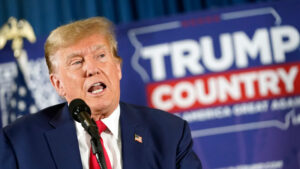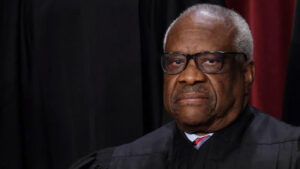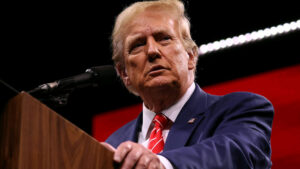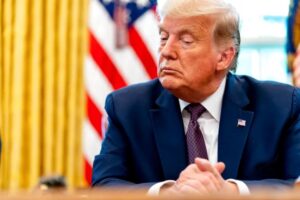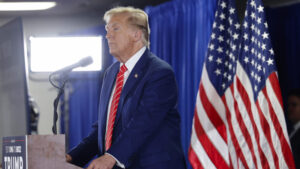Michael Cohen Reveals A Peculiar Sign Trump Reportedly Does When ‘Lying’ To The Public, Details
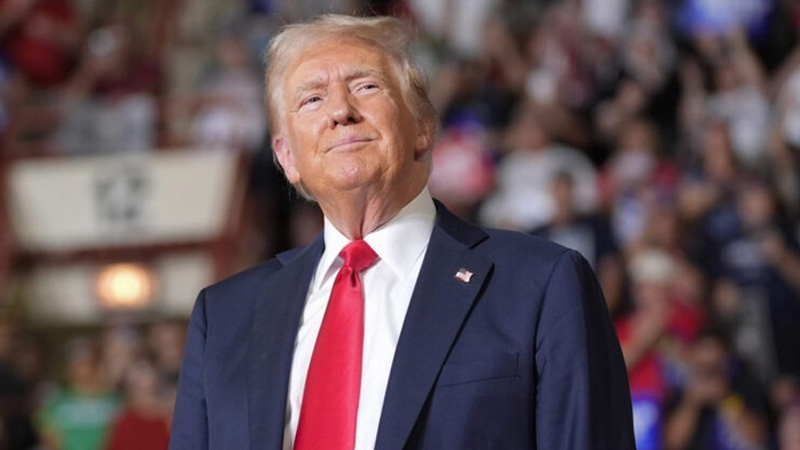
Photo Credit: AP
Michael Cohen, the former personal attorney and fixer for Donald Trump, has disclosed a peculiar sign that he claims reveals when the former president is being untruthful: a classic hand gesture, often referred to as the “accordion hands.” According to Cohen, whenever Trump employs this gesture during public appearances, it is a strong indication that he is not telling the truth.
According to a report by USA Today on Wednesday, August 28, 2024, Cohen made these revelations during an interview with CNN’s Jim Acosta. When asked how one could detect when Trump is lying, Cohen replied by describing Trump’s hand coordination, which he claims is a sign that he’s lying.
“When you see the accordion hands start going, what that means is that he’s lying. It’s a tell with Donald. Anytime that the accordion hands start, that means that he’s not telling the truth,” he elaborated.
The discussion unfolded against the backdrop of ongoing debates about the format and rules of an upcoming debate between Trump and Vice President Kamala Harris, slated for September 10. The issue of whether microphones should remain on or off when participants are not speaking has been a major sticking point between the two camps. Cohen’s comments on Trump’s hand gestures were meant to highlight the psychological aspects of Trump’s behavior, particularly his tendencies during debates and high-stress situations.
Cohen’s insights into Trump’s behavior come from his years working closely with the former president. As Trump’s longtime personal lawyer, Cohen claims to have seen these tells countless times. His remarks are not just about body language but also serve as a critique of Trump’s general honesty and conduct in public appearances.
With the debate less than two weeks away, the controversy over microphone usage continues to be a point of contention. The Harris campaign wants the microphones to remain on throughout, while Trump’s camp is pushing for them to be muted when a candidate is not speaking.
Cohen suggested that the debate over microphone rules reflects deeper concerns within Trump’s campaign about the former president’s ability to control himself during the debate. He argued that despite Trump publicly stating that he is fine with the microphones staying on, his campaign’s push to have them muted reveals a lack of confidence in Trump’s self-discipline.
“They don’t trust that he’s gonna keep his mouth shut, and he won’t stay normal for the 90 minutes of the debate. He knows he can’t control himself. He says things under his breath; he’s gonna continuously interrupt Kamala every time she says something that he doesn’t agree with. He can’t help himself,” Cohen remarked.
Cohen’s comments are significant for several reasons. Firstly, they offer a unique perspective on Trump’s behavior from someone who was once within his inner circle. As someone who has witnessed Trump’s decision-making processes up close, Cohen’s analysis adds weight to public discussions about Trump’s truthfulness and behavior under pressure.
Secondly, the remarks add a new dimension to the ongoing debate saga between Trump and Harris. The disagreement over microphone usage has highlighted both campaigns’ strategic calculations and concerns.
The Harris camp’s insistence on leaving microphones on could be seen as a challenge to Trump to maintain decorum and focus. On the other hand, Trump’s camp’s desire to mute microphones reflects a concern that an open microphone could expose the former president’s unfiltered reactions.
Cohen’s revelations could potentially impact public perception of Trump ahead of the debate. By suggesting that Trump has an identifiable “tell” when lying, Cohen has provided a simple way for viewers to scrutinize Trump’s behavior during the debate. This may increase the level of attention given to Trump’s body language, particularly among his critics and undecided voters.
Moreover, the ongoing negotiations over the debate rules could further escalate tensions between the two camps. The Harris campaign may use Cohen’s remarks to press their case for an open-microphone format, arguing that it would provide a more transparent and fair debate setting. Meanwhile, Trump’s camp may push harder for muted microphones, framing it as a necessity for a more controlled and substantive debate.
As the September 10 debate approaches, Michael Cohen’s observations add another layer of intrigue to the already contentious preparations. His claim that Trump’s “accordion hands” signal dishonesty will likely be a talking point for political analysts, journalists, and viewers alike. Whether or not these remarks influence the debate rules or public perception, they have certainly injected new drama into the unfolding political narrative.


